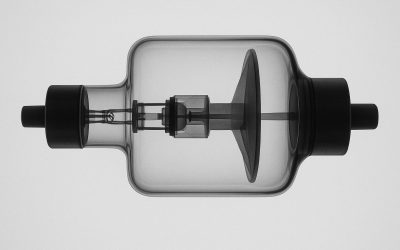In today’s fast-paced digital world, the demand for dependable power backup solutions has never been greater. Among the different types of uninterruptible power supply (UPS), the lithium ion UPS has emerged as a popular choice for many applications. This technology not only provides effective power backup solutions, but it also has several benefits that meet the needs of modern electronic gadgets and systems.
Transforming Emergency Power Solutions with Lithium-Ion Technology
A backup power system that stores energy in the form of lithium-ion batteries offers several advantages over traditional lead-acid batteries, which have been a staple in UPS systems for decades, such as increased energy density, a longer lifespan, and faster charging capabilities. These characteristics make these systems suitable for a wide range of applications, including data centers and telecommunications facilities, as well as home offices and industrial settings. A UPS’s principal duty is to provide emergency power when the main electrical supply fails. This ensures that vital systems, such as servers, computers, and medical equipment, continue to function during power outages, reducing data loss and equipment damage. The system can quickly convert to battery power in milliseconds, making it an essential component for business continuity and operational efficiency.
Advantages of Lithium-Ion System Technology
One of the major advantages of UPS systems is their tiny size. Lithium-ion batteries are much smaller and lighter than their lead-acid equivalents. This provides more flexible installation choices and makes them easier to carry. In locations where space is at a premium, such as server rooms, the smaller footprint of a lithium Ion UPS can be critical. While standard lead-acid batteries typically last three to five years, lithium-ion batteries can last eight to twelve years, depending on usage and maintenance. This increased lifespan reduces the frequency of replacements and overall maintenance expenses, making this technology a long-term, cost-effective solution.
Furthermore, these systems are becoming increasingly popular due to their energy efficiency. They often have higher charge and discharge efficiency than lead-acid batteries, which means that more of the stored energy is available. This efficiency translates to cheaper energy bills and a lower carbon impact, which aligns with the growing emphasis on sustainable practices in both the residential and commercial sectors.
Applications of Lithium-Ion Systems
Lithium-ion systems are beneficial in businesses where downtime can result in large financial losses. For example, in the telecommunications industry, where network stability is critical, these systems ensure that communication systems continue to function even during power outages. Similarly, data centers rely on similar technologies to ensure availability and protect sensitive information. Furthermore, with the advent of electric vehicles (EVs) and renewable energy sources, this technology is gaining popularity in residential settings. Homeowners are increasingly investing in solar energy systems that combine with lithium-ion solutions to store extra energy for usage during power outages or peak demand periods. This trend not only encourages energy independence but also improves the sustainability of domestic energy consumption.


